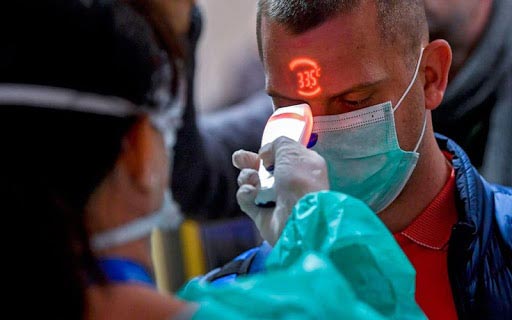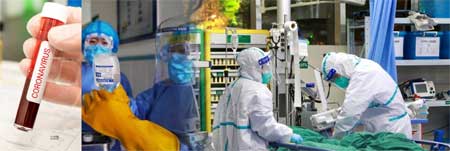|
COVID-19 and The Critical Role of MedTech
COVID-19 is changing the face of healthcare at an
unprecedented pace. MedTech has key role in tackling the virus . How to tackle
some of the issues impacting MedTech, and its effect on the NHS (England).

The MedTech industry is in the frontline here. It is
playing a crucial role in ensuring that the right technologies are available, at
scale and speed, for NHS providers and patients to combat the virus.
Diagnostic tests are needed to rapidly identify
those that are infected, as well as detect those that aren’t – in order to
free-up resource and increase NHS capacity.
Personal protective equipment (PPE) such as face
masks, gowns, gloves, goggles and footwear are essential for preventing the
spread of infection and protecting healthcare professionals.
And life-saving care also needs to be available to
all COVID-19 patients. Respiratory support equipment is the most obvious need,
accompanied by a plethora of equipment necessary for the care of patients with
severe symptoms such as infusion pumps, syringe pumps, pump consumables, IV
access, ICU equipment, catheters, artificial feeding equipment and hospital
beds.
Unsurprisingly, COVID-19 is putting the supply chain
for MedTech products under pressure. The impact of this will of course vary by
company, based on product portfolio. Some will see the need to mobilise extra
manufacturing resources to meet increased demand. Where that demand can’t be
met, the government is looking to other manufacturers (and in other industries)
for help. The ‘ventilator challenge’ for example, is seeking widespread
production of respirators to ensure capacity and capability is met in the NHS
critical care setting.
Other MedTech companies may see demand for their
products decline, for example, companies that manufacture equipment used solely
in elective procedures, which are being postponed due to COVID-19. R&D programs
are also affected as many hospitals and researchers are having to deprioritise
product evaluations.
Industry should aim to help its NHS customers and
their patients through this challenging time, becoming a critical part of
mitigating its impact on individuals.
MedTech companies will need to think carefully about
how and what their sales personnel, medical liaison staff, and others
communicate to their NHS customers. Messaging about the strength and capacity of
their services, including continuity and speed of supply, product quality,
patient outcomes and other reassurances are likely to resonate.
Engaging your NHS customers
But with the current limitation on non-essential
personnel in offices, and the understandable restrictions on hospital access,
how can MedTech best engage to support their NHS customers?
A relatively simple solution is to replace physical
meetings with digital meetings, leveraging the latest technology in video
conferencing to maximise engagement. Some companies are questioning whether it’s
responsible to be requesting any time from NHS staff during this period. With
this in mind, MedTech should also consider other channels for remote customer
engagement, moving towards an ‘on-demand’ model of contact.
Helping teams to be ‘responseready’
MedTech could use this time to build customer access
strategies and plans. It’s unlikely that the NHS will revert to business as
usual (BAU) so considering the prevailing issues in a postcoronavirus world
against your business challenges, provides an opportunity to discover new ways
of creating value for your NHS customers.
If the ‘new normal’ includes the limiting of face-
to-face gatherings it is likely to result in cancelled or postponed training
sessions, conferences and events. Engaging in online learning, not to simply
occupy some ‘downtime’ but to build the capabilities you and your colleagues
will need to thrive in a postcoronavirus world.

A new NHS landscape?
MedTech companies may also discover that they are
working within a new landscape of providers who have integrated at pace. The
COVID-19 crisis will be a true test of how far social care, the community and
third sector, and independent sector providers are really embedded, as they work
together to relieve the burden on hospitals, and use primary, community and care
settings to create critical care capacity.
For example, NHS England’s guidance said that when
assessing if a patient was ready to go home, doctors were not to ask if the
patient is “medically fit” or “back to baseline” but instead if they were
“medically optimised”. It acknowledges this will require patients to receive
ambulatory heart failure treatment, intravenous antibiotics and oxygen at home
or in a community setting. Systems, not hospitals, will have to take on many of
MedTech’s patient groups previously based in acute care. What’s clear is that
MedTech will need to understand its morphing customer base to fully support the
effort, and to be as adaptable and agile as the NHS is having to be.

(Ref :
https://wilmingtonhealthcare.com/covid-19-and-the-critical-role-of-medtech/
)
.
|

